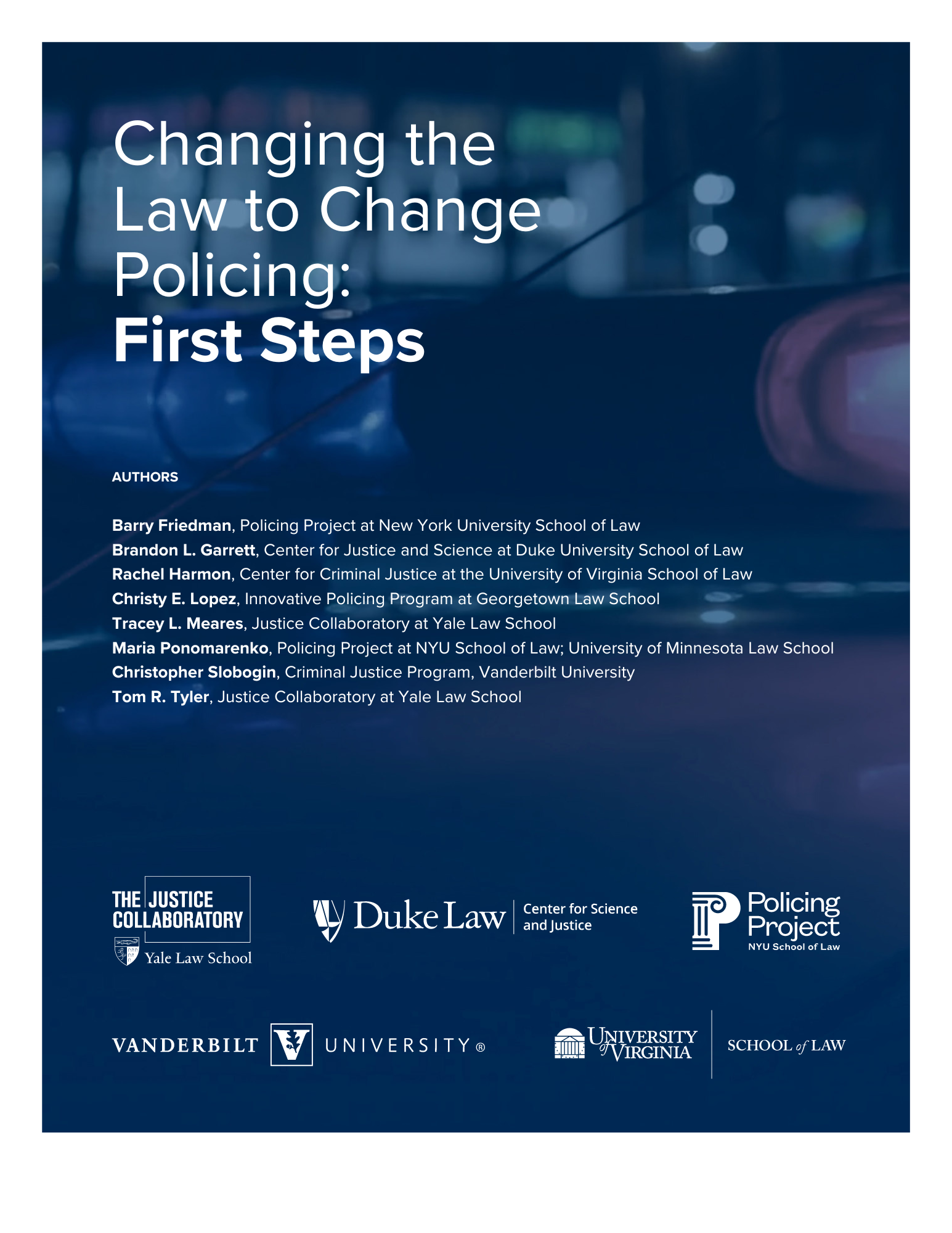By Barry Friedman et al.
Recent events have brought to the fore longstanding concerns about the nature of policing in the United States and how it undermines racial equity. As an institution, policing needs significant reconsideration. It is time to rethink the structure and governance of policing. It is also time to engage in a deeper conversation about the meaning of public safety. In the meantime, however, the following is a list of urgently-needed reforms, compiled by a small group of law school faculty, each of whom runs or is associated with an academic center devoted to policing and the criminal justice system. The reforms are not intended as an entire agenda for what ought to happen around policing, or what American policing should look like. Rather, they offer immediate, concrete steps federal, state, and local governments can take to address enduring problems in policing. The authors are scholars who are also deeply involved in the daily practice of policing, and included among them are the Reporters for the American Law Institute’s Principles of the Law: Policing, which works with advisers from across the ideological spectrum in drafting high-level principles to govern policing, though the recommendations here go beyond the scope of the ALI project.
New York: NYU School of Law Policing Project (June, 2020).18p.



